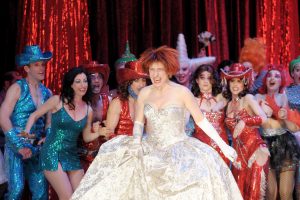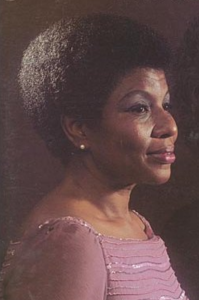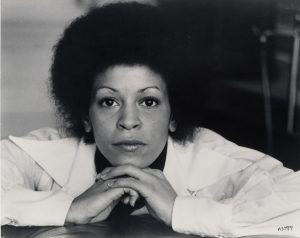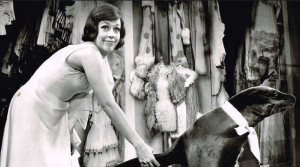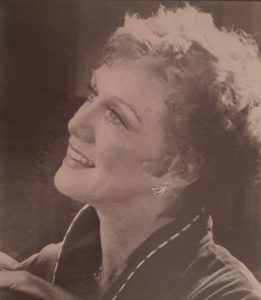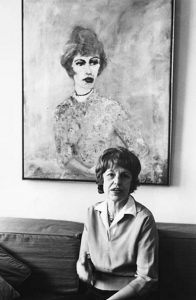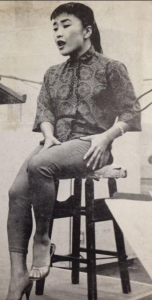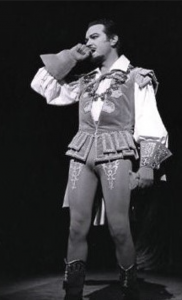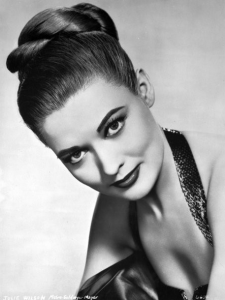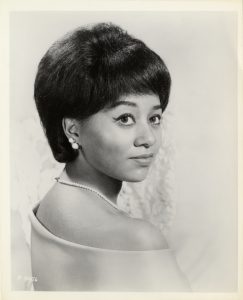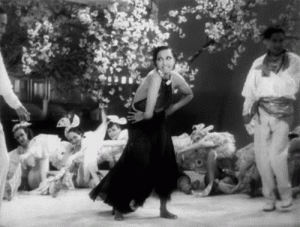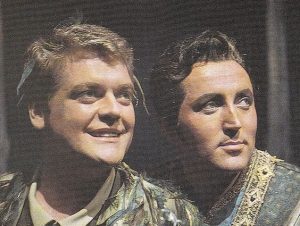Podcast: Play in new window | Download (Duration: 1:18:12 — 85.4MB) | Embed
Subscribe: Spotify | TuneIn | RSS | More
Here is the second of a two part series in celebration of David Savran’s new book, Tell It to the World: The Broadway Musical Abroad, a monumental study on transnationalism and the Broadway-style musical. In the first part, David and I spoke about (and played examples from) the rich culture surrounding musicals in South Korea. Today’s episode focuses on Germany and the influx of Broadway musicals since World War II. Although the German-speaking world has a long tradition of popular music theatre, most notably operetta, the arrival of American musicals (beginning in 1955 with Kiss Me, Kate) made a very big splash. In 1961, My Fair Lady opened in West Berlin, became a sensational success, and permanently changed the shape of German musical theatre. Both Kiss Me, Kate and My Fair Lady are part of the first wave of Broadway musicals that have become part of the standard repertoire in state-subsidized theatre (the others include Cabaret, Anatevka (Fiddler on the Roof), West Side Story, La Cage aux Folles, and Hair).
We also look at the development of home-grown Broadway-style musicals in both West and East Germany from the 1960s through the 1980s and their subsequent impact on the work of experimental theatre makers. The next to last chapter of the book studies the musical farces directed by the great theatrical innovator, Herbert Fritsch, since 2011. The last focuses on the work of Barrie Kosky at the Komische Oper Berlin and how he turned that house into the foremost theatre in Germany for innovative re-imaginings of Broadway musicals, with emphasis on iconoclastic stagings by Kosky (and other directors) of the work of Kurt Weill. We play examples from many of the thrilling productions about which David writes which deserve to be known by a much wider audience. Along the way we also listen to nearly a century’s worth of performances by some legendary performers of German operetta and musicals, including Fritzi Massary, Olive Moorefield, Gisela May, Max Hansen, Dagmar Manzel, Horst Schulze, Ruth Rosenfeld, Julia Migenes, Julia Koci, and the late Rainer Luhn.
Countermelody is a podcast devoted to the glory and the power of the human voice raised in song. Singer and vocal aficionado Daniel Gundlach explores great singers of the past and present focusing in particular on those who are less well-remembered today than they should be. Daniel’s lifetime in music as a professional countertenor, pianist, vocal coach, voice teacher, and journalist yields an exciting array of anecdotes, impressions, and “inside stories.” At Countermelody’s core is the celebration of great singers of all stripes, their instruments, and the connection they make to the words they sing. By clicking on the following link (https://linktr.ee/CountermelodyPodcast) you can find the dedicated Countermelody website which contains additional content including artist photos and episode setlists. The link will also take you to Countermelody’s Patreon page, where you can pledge your monthly support at whatever level you can afford.
